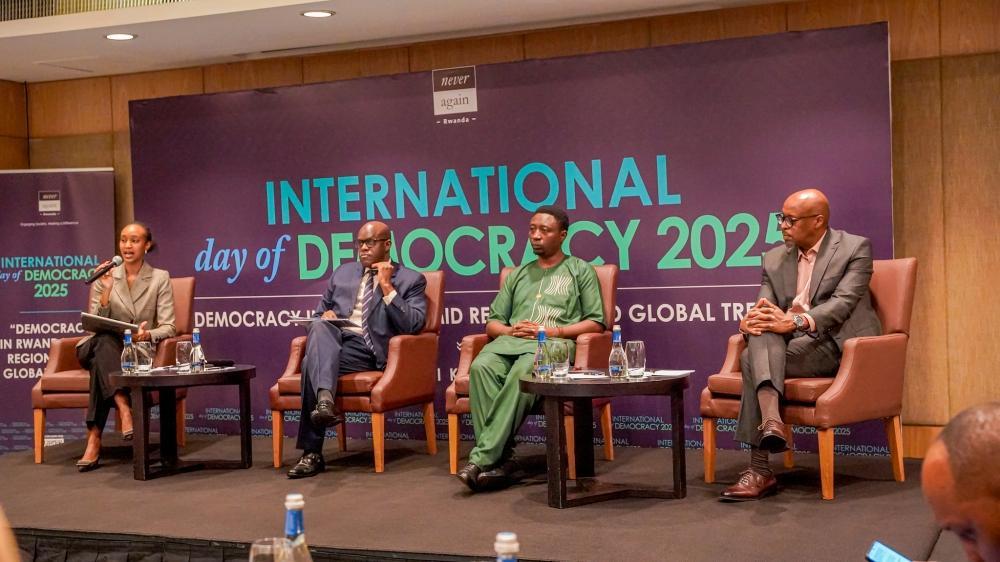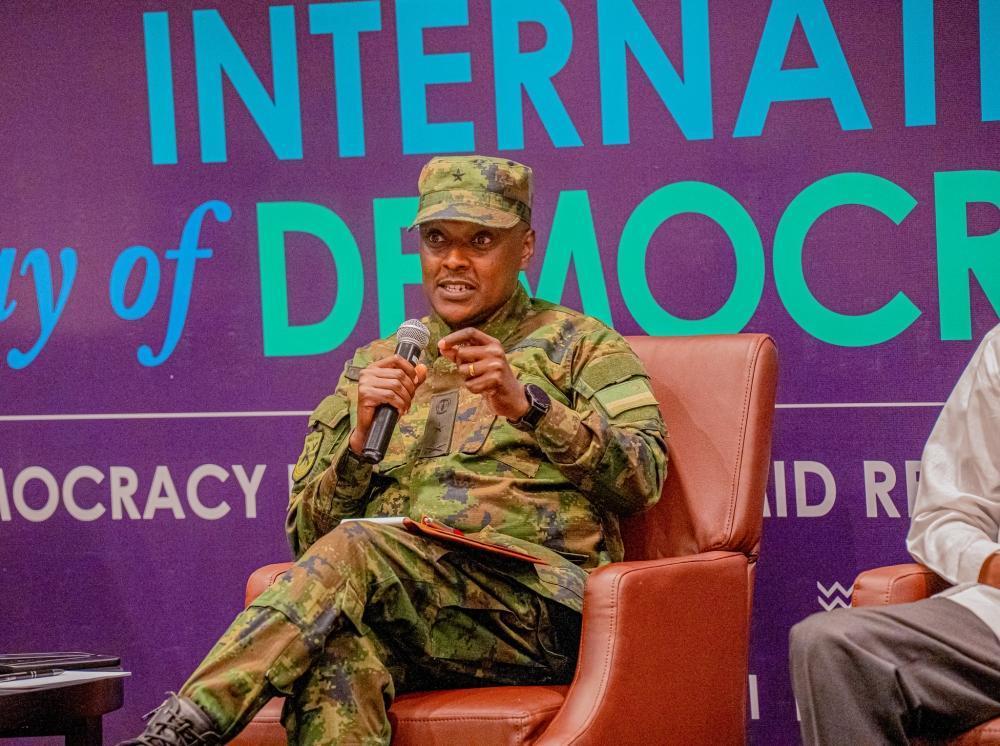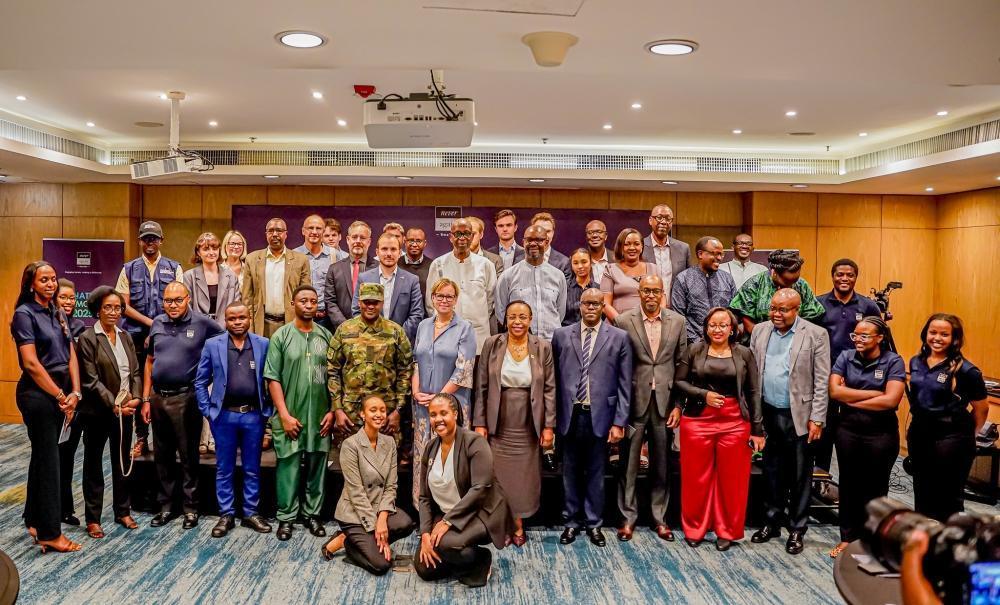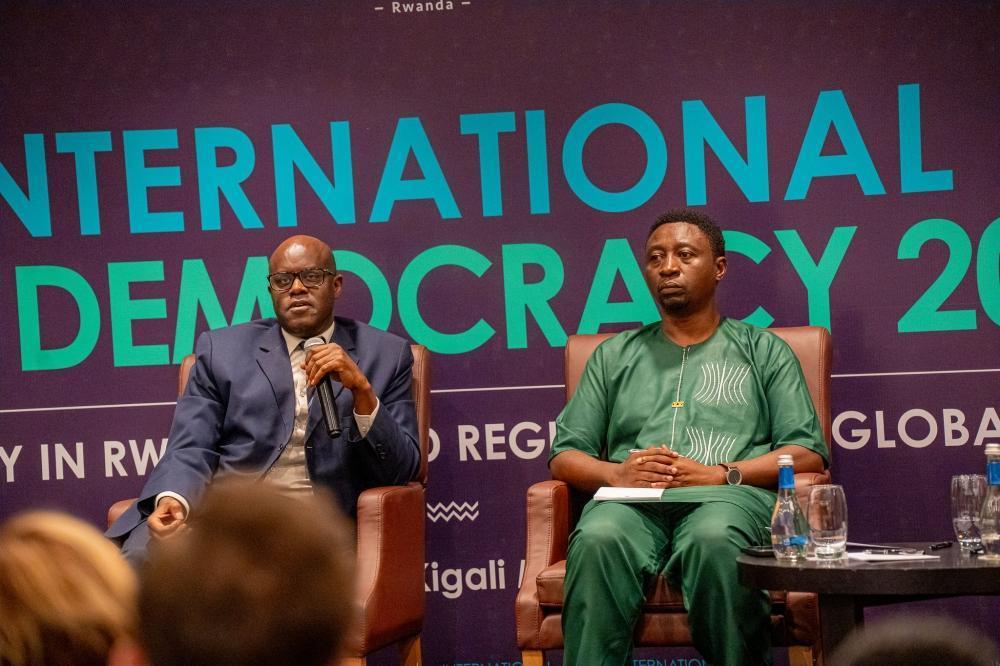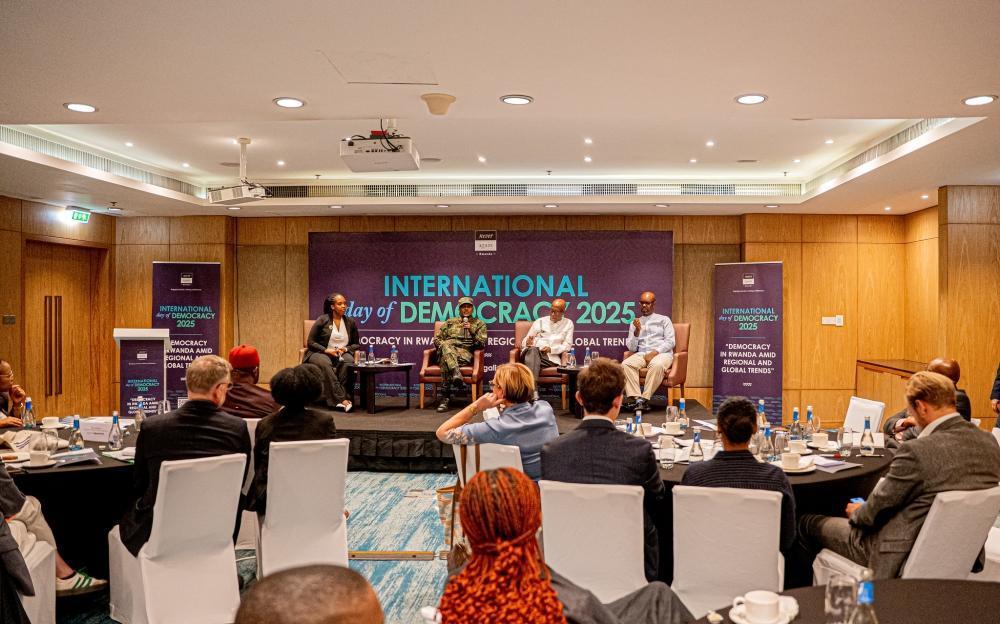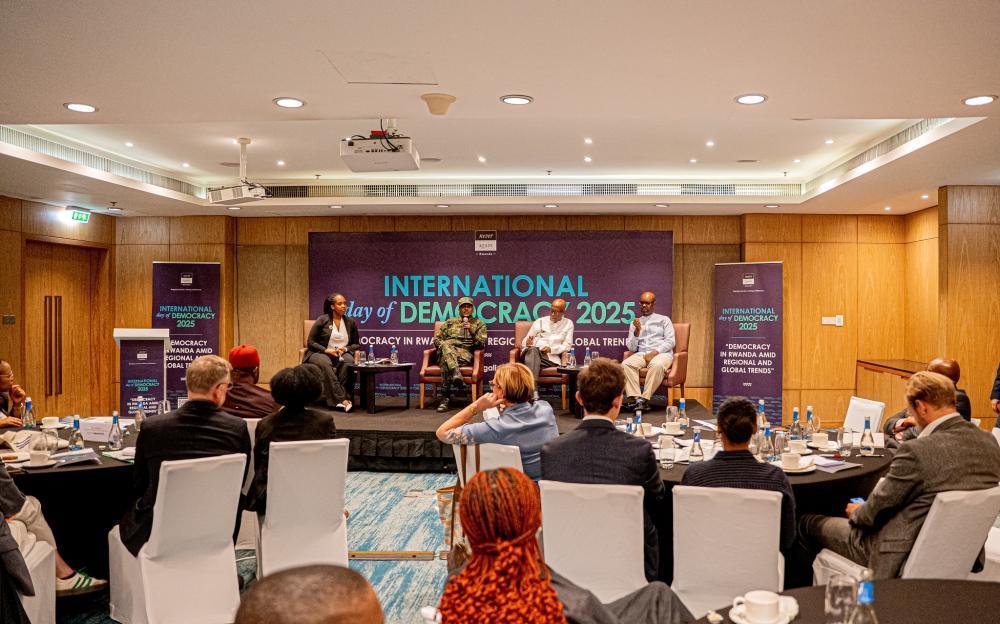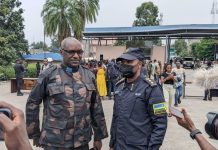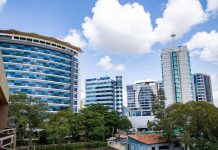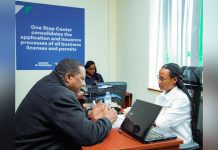Africa-Press – Rwanda. Rwanda joined the rest of the world on Monday, September 15, to mark the International Day of Democracy, reflecting on ways to preserve homegrown governance solutions developed over the past 31 years.
Experts maintained that Rwanda needs to safeguard its hard-won stability and development while nurturing more inclusive and sustainable democratic practices amidst rising global pressures and shifting generational demands.
Gathered at the Marriott Hotel, government officials, policy analysts, and civil society leaders engaged in debate on what could strengthen the core values of democracy, from inclusiveness and citizen participation to adaptability in the face of evolving political and socio-economic realities.
HAPPENING: #Rwanda is celebrating World Democracy Day, with a symposium organized by Never Again Rwanda at Marriott Hotel, bringing together officials and analysts to debate and reflect on sustaining democracy in #Rwanda and the region. pic.twitter.com/Jx6Y9t4FY1
— The New Times (Rwanda) (@NewTimesRwanda) September 15, 2025
Félicien Nsengumukiza, Deputy CEO of the Rwanda Governance Board, highlighted what makes Rwanda’s governance commendable, the key indicators, and areas that require further attention for improvement going forward.
“Rwanda made fundamental choices, decided to reject confrontational politics and embrace consensus democracy,” he said. “We decided to eradicate all kinds of discrimination and accept power sharing and gender equality. Unity and security for all Rwandans are sacred.”
“The government has consistently demonstrated its commitment to inclusive governance and citizen participation. Through decentralization policies, we have brought decision-making closer to the people. Through various citizen engagement platforms, we have created channels for public participation in governance processes,” he explained.
Brig Gen Ronald Rwivanga, the Defence and Military Spokesperson, speaks at the event.
He mentioned some homegrown governance initiatives that have promoted justice, good governance, national unity and reconciliation after the 1994 Genocide against the Tutsi, such as the Gacaca courts, Abunzi, Umushyikirano, Imihigo, Ubudehe, and citizen participation forums.
“Rwanda’s approach to governance has always emphasized consensus”, said Nsengumukiza. “ Building and inclusive participation, we believe that sustainable solutions emerge when multiple voices contribute to policy discussions and when different perspectives inform decision-making processes.”
“This philosophy extends to our approach to democratic development. We welcome constructive feedback, thoughtful analysis, and practical recommendations that can help us build more responsive and effective institutions,” he added.
The event, organized by Never Again Rwanda, provided a space to reflect not only on Rwanda’s unique path but also on lessons from broader regional and global dynamics.
The 2025 celebration comes at a time when democratic systems worldwide are under strain, facing mounting challenges from shifting geopolitics, technology disruptions, and widening social divides.
For Rwanda, the dialogue underlined both the resilience of its homegrown governance model and the urgency of ensuring that future generations inherit a democracy that is responsive, participatory, and anchored in unity and progress.
Frank Habineza, Chairman of the Democratic Green Party of Rwanda, said that the rule of law, free and fair elections, freedom of speech, inclusive governance, and participatory democracy, have been made possible through decentralization.
He noted that Rwanda’s sociopolitical realities are different than in other countries due to the 1994 Genocide against the Tutsi, whose effects are still felt today.
Jean Paul Kimonyo, Regional Director for the Levy Mwanawasa Centre for Democracy and Good Governance, reflected on the difficult situation Rwanda faced after the 1994 Genocide against the Tutsi, as leaders charted a path to reconstruction.
“Most of the promises made at the time have been fulfilled, beginning from the general demands of people, security, improvement of livelihoods and fairness in the system,” said Kimonyo.
“Participatory platforms such as Umushyikirano, Imihigo, Ubudehe and more, no one should underestimate those dynamics because most of the adjustments the government made came from those platforms. The latter facilitated accountability and that is participatory democracy in actions,” he said.
Current security realities
Gen Ronald Rwivanga, the Defence and Military Spokesperson, highlighted Africa’s major security challenges, including violent criminality, inter-communal conflicts, cross-border insurgencies, terrorism, and refugee crises.
Rwivanga noted that in some cases, governments abandon parts of cities to criminals or give up on ethnic and tribal conflicts. These insecurities, he said, undermine socio-economic transformation, discourage foreign investment, and worsen poverty while straining efforts to maintain peace and stability.
“Therefore, it’s the government’s primary responsibility to address root causes of these problems. You cannot outsource solutions. You cannot make solutions become foreign responsibility. Never. The moment you’re doing that, you’re failing from the critical,” he noted.
“To ensure security and stability, it’s important that the government works within itself but also without [to ensure] collaboration with regional entities to address cross-border security matters,” he added.
Delegates pose for a group photo
Félicien Nsengumukiza, Deputy CEO of the Rwanda Governance Board and Frank Habineza, Democratic Green Party chairman during the meeting.
Panelists engage in a discussion as Rwanda joined the rest of the world to mark the International Day of Democracy on Monday, September 15. Photos by Kellya Keza
For More News And Analysis About Rwanda Follow Africa-Press

